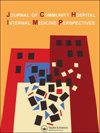长冠状病毒症状与全血细胞计数(CBC)炎症标志物的相关性:一项横断面研究
IF 0.9
Q3 MEDICINE, GENERAL & INTERNAL
Journal of Community Hospital Internal Medicine Perspectives
Pub Date : 2023-11-04
DOI:10.55729/2000-9666.1259
引用次数: 0
摘要
背景:长期covid是指感染后持续的非特异性症状,如疲劳、注意力下降和睡眠问题,持续至少三个月,且不能归因于其他原因。之前的研究调查了入院时C反应蛋白(CRP)等炎症标志物与入院前几个月的长期covid症状之间的关系。三分之一的患者会患上后冠综合征。因此,早期诊断有助于减轻公共卫生负担。我们试图观察住院时全血细胞计数(CBC)标记物(如红细胞(RBC)、白细胞(WBC)、中性粒细胞与淋巴细胞比率(NLR)等)与6个月随访时的长时间COVID症状之间的相关性。方法:167例患者(44.9%为女性,平均年龄49岁)通过远程医疗进行半结构性访谈,主要针对疲劳、注意力不集中和性欲减退三个突出症状进行访谈。结果:三分之二的患者有长冠症状,其余患者无长冠症状。症状组NLR明显高于对照组。在6个月的随访中,性欲下降的患者有更严重的淋巴细胞减少(p=0.028)和更高的NLR值(p= 0.007)。精神不集中与白细胞数量和多形核(PMN)计数高有关。其他症状与血液标志物无关。结论:利用现有的数据,如CBC,可以帮助预测以前住院患者即将出现的症状和进一步的措施,如康复。应进一步调查COVID疫苗接种对长COVID转化的影响。病毒的不同变种可能产生不同的结果。本文章由计算机程序翻译,如有差异,请以英文原文为准。
Correlations of Long COVID Symptoms and Inflammatory Markers of Complete Blood Count (CBC): A cross-sectional study.
Background: : Long-COVID refers to lasting unspecific symptoms like fatigue, decreased concentration and sleep issues after infection which persist for at least three months and cannot be attributed to other causes. Previous studies surveyed the association between inflammatory markers like C - reactive protein (CRP) at hospital admission and long-COVID symptoms in the preceding months. Post-COVID syndrome can affect one-third of patients. Thus early diagnosis can assist in reducing burdens on public health. We attempted to see any correlations between complete blood count (CBC) markers (like red blood cell (RBC), white blood cell (WBC), Neutrophil to lymphocyte ratio (NLR), etc.) at hospital admission and long COVID symptoms at a 6-month follow-up. Methods: 167 patients (44.9% females, mean age 49 years old) answered semi-structural interviews through telemedicine which focused on the three prominent symptoms: fatigue, loss of concentration and decreased libido. Results: Two third of patients have symptoms of long COVID and others do not have. NLR in the symptomatic group was statically higher. Patients who underwent decreased libido at a 6-month follow-up had significantly more severe lymphopenia (p=0.028) and higher NLR values (p-value=0.007). Poor mental concentration is associated with high WBC in numbers and polymorphonuclear (PMN) count. Other symptoms do not correlate with blood markers. Conclusion: Utilizing available data like CBC can help predict the upcoming symptoms of previously hospitalized patients and further measures like rehabilitation. Additional investigations should be done on the effect of COVID vaccination on converting long COVID. Different variants of the virus may have different results.
求助全文
通过发布文献求助,成功后即可免费获取论文全文。
去求助
来源期刊

Journal of Community Hospital Internal Medicine Perspectives
MEDICINE, GENERAL & INTERNAL-
自引率
0.00%
发文量
106
审稿时长
17 weeks
期刊介绍:
JCHIMP provides: up-to-date information in the field of Internal Medicine to community hospital medical professionals a platform for clinical faculty, residents, and medical students to publish research relevant to community hospital programs. Manuscripts that explore aspects of medicine at community hospitals welcome, including but not limited to: the best practices of community academic programs community hospital-based research opinion and insight from community hospital leadership and faculty the scholarly work of residents and medical students affiliated with community hospitals.
 求助内容:
求助内容: 应助结果提醒方式:
应助结果提醒方式:


